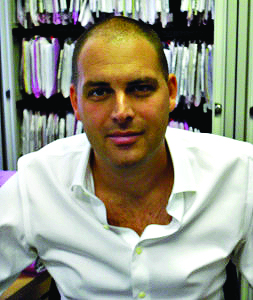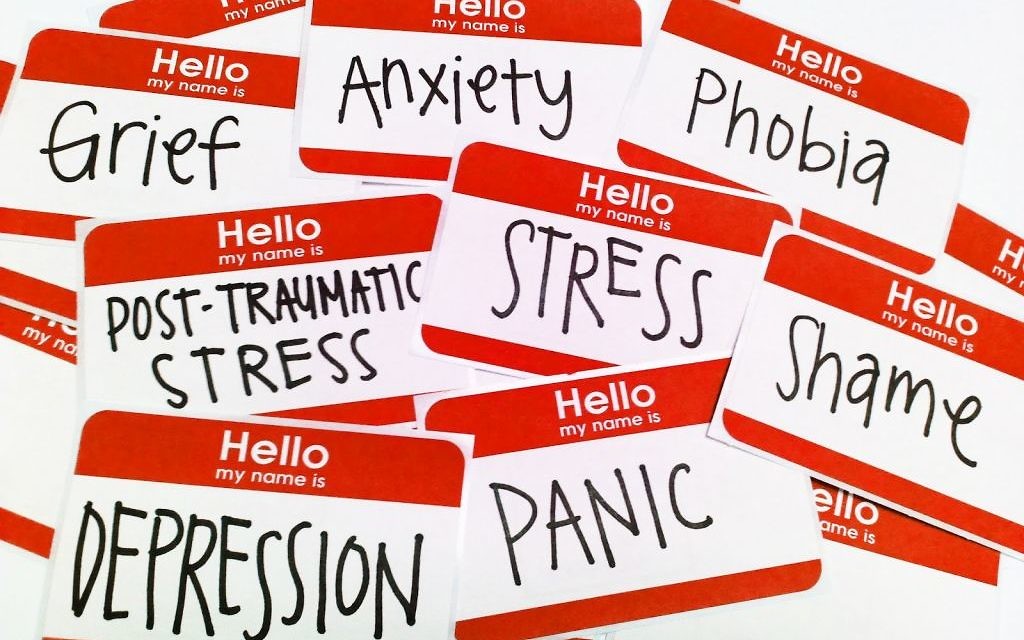Mental Health Awareness Week: Questions a Psychiatrist gets asked the most
It’s Mental Health Awareness Week, and there are so many question’s people ask. Dr Mark Silvert answers these queries....
It’s Mental Health Awareness Week, but yet there are so many question’s that people ask and want answers to. These are the 10 most often asked I get as a Psychiatrist.
1) Isn’t it dangerous to work with mentally ill people?
No.
Get The Jewish News Daily Edition by email and never miss our top stories Free Sign Up
I have worked for over 15 years now since I was a medical student in mental health. I have worked in PICUs (Psychiatric Intensive Care Units) and prisons.
I have never once been hurt by a patient with mental health problems. That is not to say it never happens. It can do, when people are on drugs, intoxicated or very unwell – people can lose control and become aggressive but it is a myth that people with psychotic illnesses are dangerous. The term schizophrenia has been badly used in the media and film to suggest people with this illness are in someway akin to serial killers or psychopaths! It is a bad misnomer. And hurts those badly with such diagnoses.

2) Aren’t all people that work in mental health, mentally ill themselves?
“We just talk to our shrinks. Huh they talk to their shrinks. No wonder we’re up the wall!”
Wrote Alice Cooper after he was discharged from a mental hospital in one of his songs from his album “From the Inside” in 1978.
That lyric always makes me laugh. And he’s right, a lot of my colleagues in mental health have experienced mental health problems of their own. I promise you some of the best clinicians are the ones that truly understand how hard it can be to suffer with mental health problems from personal experience.
3) How do you work with people with eating disorders, isn’t it frustrating?
Anorexia nervosa is the leading cause of mortality within my profession (psychiatry) so we know to take it extremely seriously. Lay people often ask me why we just don’t tell people to eat and let them get on with it. That is to not understand the pathology or the reasons why people develop eating disorders. All the research shows a huge genetic component and no-one does it for attention or to look good which are common misconceptions.
4) Do you hold people down and shock them with electricity?
Again Hollywood has done mental health treatment a disservice, I have given ECT (Electroconvulsive Therapy) myself and although it can be scary for patients to think about (in the same way that many operations or procedures in general are scary to think of) they are put to sleep by anaesthetists and we induce a very short seizure for a few seconds which can help people who are extremely unwell.
I have patients that come and ask me for it when they know they are losing the fight against resistant depressive symptoms for example. The image of someone held down and electrocuted is again a myth, a horrid one. And unhelpful as ECT is very effective.
5) Are Psychiatrists “real” doctors?
Yes, we have to go to medical school just like all other doctors and then spend 2 years working in general medicine and surgery and then another 6 or more in mental health.
6) Why didn’t you want to do something like save lives if you are a doctor?
Suicide is the leading cause of death among young people aged 20-34 years in the UK, so I very much would hope that rapid and effective interventions means I do and have saved lives.
Ok, so you don’t see junior psychiatrists running around hospitals in “Grey’s Anatomy” and “Holby City” in exciting sequences saving lives, but that does not mean we don’t work hard to save lives in our work.
7) Do people ever get better?
An emphatic yes. I always tell my patients that mental health is not like going to an orthopaedic surgeon and getting an operation and a few weeks later you are hopefully cured.
Mental health problems take months, sometimes years to recover from but people get better all the time, I see it every week or I could not do the job that I do.
8) Do you take your patient’s problems home with you?
Although we get supervision, appraisals, reflective practice groups and times to talk to about what our patients are experiencing and how we plan to help and work with them without becoming overwhelmed, we do go home and wonder how our patient’s are doing, I think we would be robots if we didn’t. We are getting better at setting up systems for out patient’s to call for emergency help around the clock, which helps us to sleep at night.
9) Are you a psychologist?
No, not a psychologist. I work with them, they are great at what they do. But they study psychology and I studied psychiatry, we both need to know about each others expertise but we are different. Some psychologist’s don’t like psychiatrists as they think we only dish out pills but that’s just not true…
10) Do you just prescribe drugs?
Absolutely not, I want my patients on the minimum amount of medications that help them recover and stay well but I also take time to talk, listen and work with them in a social, psychological and biological model. I like to teach and educate families and patients about mental illness, which is the purpose of this blog.
Dr Mark Silvert is a Medical Director and Consultant Psychiatrist at The Blue Tree Clinic

Thank you for helping to make Jewish News the leading source of news and opinion for the UK Jewish community. Today we're asking for your invaluable help to continue putting our community first in everything we do.
For as little as £5 a month you can help sustain the vital work we do in celebrating and standing up for Jewish life in Britain.
Jewish News holds our community together and keeps us connected. Like a synagogue, it’s where people turn to feel part of something bigger. It also proudly shows the rest of Britain the vibrancy and rich culture of modern Jewish life.
You can make a quick and easy one-off or monthly contribution of £5, £10, £20 or any other sum you’re comfortable with.
100% of your donation will help us continue celebrating our community, in all its dynamic diversity...
Engaging
Being a community platform means so much more than producing a newspaper and website. One of our proudest roles is media partnering with our invaluable charities to amplify the outstanding work they do to help us all.
Celebrating
There’s no shortage of oys in the world but Jewish News takes every opportunity to celebrate the joys too, through projects like Night of Heroes, 40 Under 40 and other compelling countdowns that make the community kvell with pride.
Pioneering
In the first collaboration between media outlets from different faiths, Jewish News worked with British Muslim TV and Church Times to produce a list of young activists leading the way on interfaith understanding.
Campaigning
Royal Mail issued a stamp honouring Holocaust hero Sir Nicholas Winton after a Jewish News campaign attracted more than 100,000 backers. Jewish Newsalso produces special editions of the paper highlighting pressing issues including mental health and Holocaust remembrance.
Easy access
In an age when news is readily accessible, Jewish News provides high-quality content free online and offline, removing any financial barriers to connecting people.
Voice of our community to wider society
The Jewish News team regularly appears on TV, radio and on the pages of the national press to comment on stories about the Jewish community. Easy access to the paper on the streets of London also means Jewish News provides an invaluable window into the community for the country at large.
We hope you agree all this is worth preserving.
-
By Brigit Grant
-
By Laurent Vaughan - Senior Associate (Bishop & Sewell Solicitors)
-
By Laurent Vaughan - Senior Associate (Bishop & Sewell Solicitors)
-
By Laurent Vaughan - Senior Associate (Bishop & Sewell Solicitors)
-
By Laurent Vaughan - Senior Associate (Bishop & Sewell Solicitors)






















